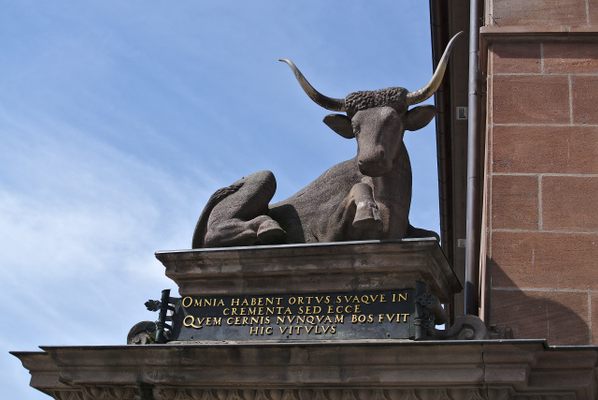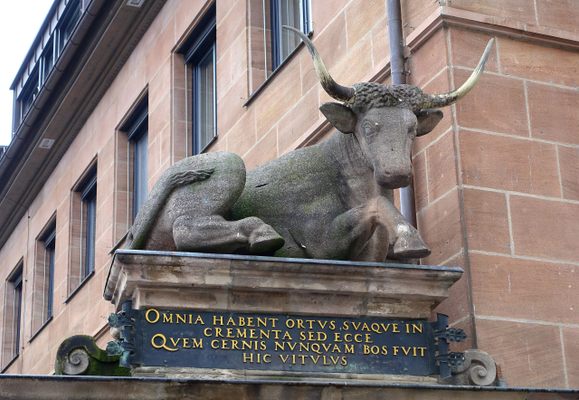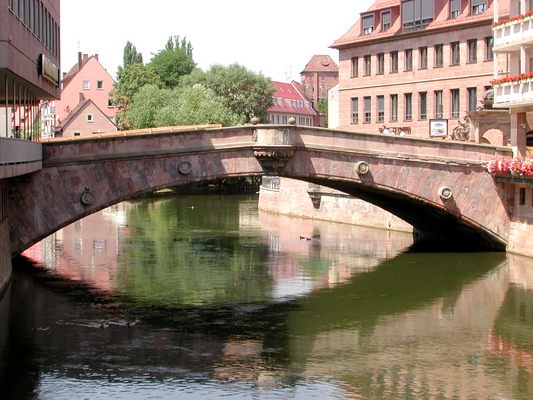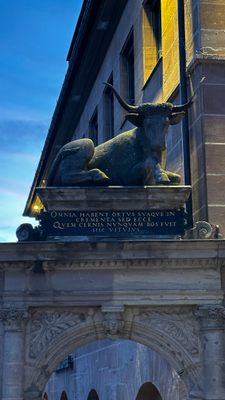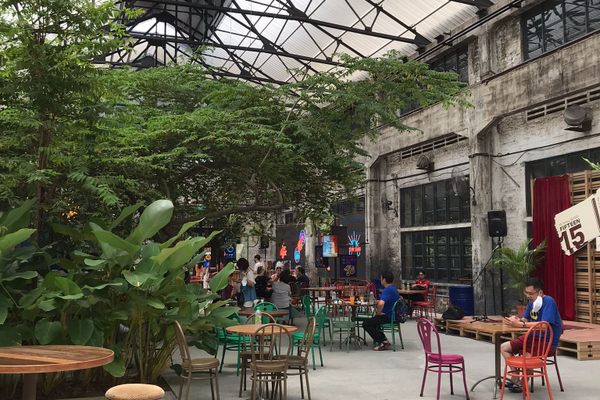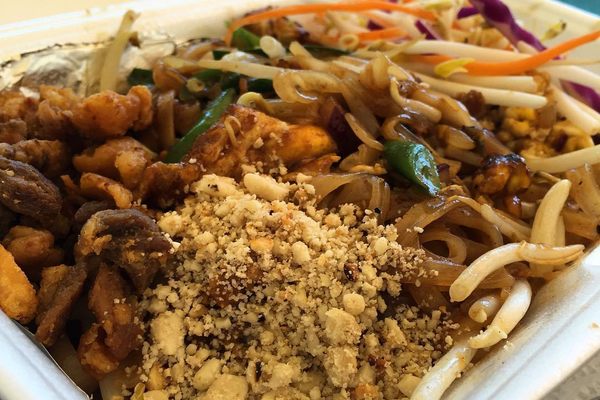About
On the north bank of the ancient Fleischbrücke bridge in Nuremberg stands a curious ornate arched doorway topped with a statue of a burly ox. It marks the site that was once the entrance to the city's medieval meat market.
From the early Middle Ages to the mid-20th century, meats of all kinds (including beef, mutton, goat, pork, venison, horse, rabbit, hare, chicken, duck, pheasant and goose) could be purchased here by those citizens with enough money to afford them. Animals would often be dispatched in the market's slaughterhouse and offal would be thrown by butchers into the Pegnitz river, which no doubt added to the already nauseating stench of the river, through which raw sewage also flowed.
In 1491, a roof and a wooden structure were added to the market. Another century later in the 1570s, the market was housed within the walls of a sturdy sandstone building. The ornate doorway and the oxen statue were built as the entrance to the market in 1599. An inscription beneath the oxen cryptically reads: "Everything has its origin and beginning, but see, the ox you see here has never been a calf."
The monument became a popular landmark for both citizens of Nuremberg and visiting tourists and in the 19th and early 20th century often featured in photographs on postcards. However, in 1945 the meat market was destroyed by several direct hits from bombs during the Allied bombing campaign of Nuremberg. Sadly the doorway and its iconic oxen statue were badly damaged by shrapnel.
Fortunately, in 1950 both the doorway and the statue were fully restored and repaired by historical conservators and stand to this day as a monument to the history of a market that has now vanished.
Related Tags
Know Before You Go
The oxen portal can be seen for free at the corner of the entrance to the Fleischbrücke bridge.
Published
January 31, 2022
